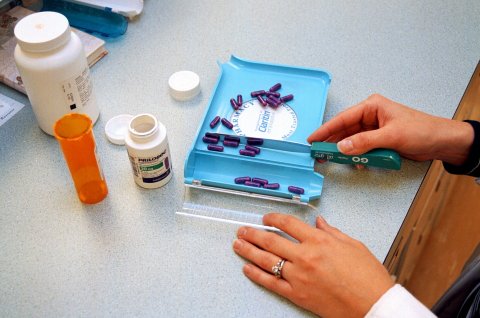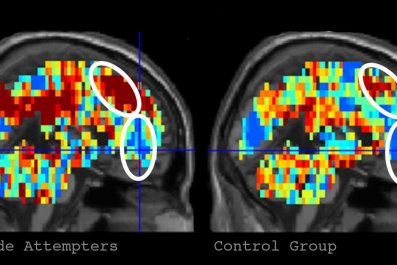Some of the top-selling drugs in the world may double the risk of stomach cancer. A new study in Gut published Monday linked long-term use of proton pump inhibitors, a class of drugs that includes Prilosec and Nexium, with an increased risk of stomach cancer.
The overall chances of developing stomach cancer are very small. Less than one percent of the people studied were diagnosed with this kind of cancer over seven years, and stomach cancer cases account for only 1.7 percent of all cancers diagnosed in the U.S. every year.
And even fewer people should be affected by this increased risk; the study only looked at people who had been treated for an infection linked with ulcers. The bacteria responsible for this infection, Helicobacter pylori, is also associated with an increased risk of stomach cancer on its own.

However, that increased relative risk is alarmingly high. People who used the medications for more than three years may have increased their risk of developing stomach cancer eight-fold.
"Ultimately, the risk of gastric cancer is quite low, but overall, the field is moving toward being cautious with these agents," Dr. Yelena Janjigian, a gastric cancer specialist at Memorial Sloan Kettering Cancer Center told Newsweek. "Even before this paper came out, the general trend has been to take people off the therapy."
She noted that the type of stomach tumors in this study aren't seen as commonly in Western countries as they are in countries in Asia, where this study was done. Therefore, the applicability of the results to American patients may be limited, Janjigian said. "This study certainly adds to the body of literature that there is some, maybe increased risk from chronic PPI use, but it is by no means definitive."
The researchers used other medications that treat heartburn in a different way, including Zantac and Pepcid AC, as a control to ensure it was really these drugs behind the effect observed and not something else.
Both medications like Zantac and proton pump inhibitors work by decreasing the amount of acid that the stomach lining makes. Zantac blocks a chemical called histamine that can activate certain pumps that need to be triggered for the stomach to produce acid; medications like Prilosec and Nexium block those pumps directly.
Nexium is one of the best-selling drugs for the company that makes it, AstraZeneca. In 2016, the drug brought in over $2 billion in revenue, according to the company's most recent annual report.
"We are confident in the safety and efficacy of Nexium and Prilosec when used in accordance with the FDA approved label, which has been established through numerous clinical trials," said AstraZeneca spokesperson Michele Meixell.




















